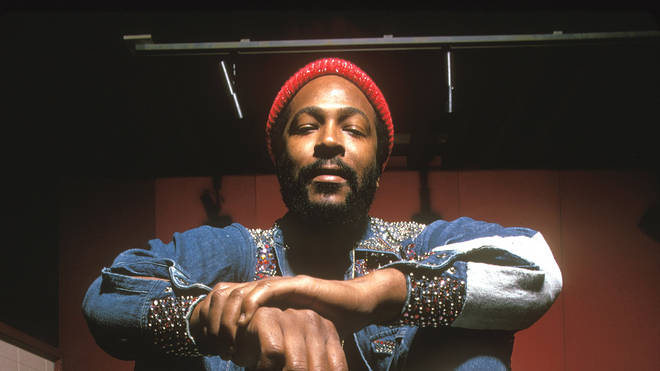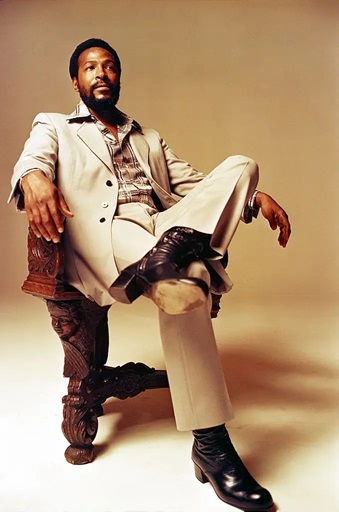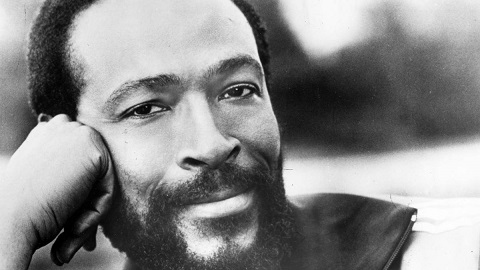Tribute: Marvin Gaye

Marvin Gaye was a luminary in the world of Motown and Soul. Gaye could do it all: classic, catchy hits like "Ain't No Mountain High Enough", "How Sweet It Is (To Be Loved By You)" and "I Heard It Through the Grapevine"; sultry songs such as "Sexual Healing" and "Let's Get It On"; socially-conscious performances exemplified by "What's Going On" and "Inner City Blues (Make Me Wanna Holler)". Despite his musical appeal across genres and phenomenal success, Gaye was not satisfied with life. He suffered from depression, attempting suicide on more than one ocasion, and he struggled with drug abuse. Although the world loved Marvin Gaye, he did not like himself. And his father liked him even less.
Marvin Pentz Gay, Jr. was born on 2 April 1939 to Alberta and Marvin Gay, Sr. Througout his life, Marvin's relationship with his father was tumultuous. Reportedly his father physically abused Marvin as a child. The boy was his mother's favorite, and this supposedly created jealousy in the older man. Once Marvin, Jr. achieved world-wide success, the older man's jealousy intensified. Marvin, Sr. liked to dress in women's clothing (prompting the son to change his name to "Gaye", in an attempt to distance himself from his parent's curious proclivity) and he was an alcoholic.
Marvin began singing in church at the age of four. After several failed attempts at succeeding in a vocal group, Gaye was "discovered" when he performed at Motown founder Berry Gordy's house. Gaye intended on pursuing a career as a jazz musician. His first single, "Let Your Conscience Be Your Guide", released in 1961, was unremarkable. The following year, he found success with "Stubborn Kind of Fellow", "Hitch Hiker", and "Pride and Joy". Gaye's musical achievements began to accumulate: "How Sweet It Is (To Be Loved By You)" was released in 1964 and "Ain't That Peculiar" in 1965.
Gaye's star was rapidly ascending. He scored multiple hits, including several duets with Tammi Terrell. (See Gaye's selected discography, later on this page.) Gaye and Terrell had a unique musical bond. In 1967, while performing, Terrell collapsed in Gaye's arms. She was diagnosed with a malignant brain tumor. She would die of the affliction in 1970, at the age of 24. Gaye was devastated; it is speculated that this was when his drug use began (or began in eanest). (You can visit Tammi Terrell's Tribute here.)

Marvin Gaye would spend the remainder of his life scaling the heights of musical success, while alternately plumbing the deaths of depression and drug-fueled paranoia. He experienced two divorces and briefly fled to Belgium trying to escape his demons. Yet upon his return to the States, his depression intensified and his cocaine habit spiraled out of control. He had moved back into his parents' home, where his doting mother would read the Bible to him amidst the tension between her son and his jealous, alcoholic father. Paranoid that someone was trying to kill him, Marvin bought a gun, which he gave to his father, to protect the family.
On 1 April 1984, Marvin was with his mother when his father appeared, angry and shouting at his wife about some missing documents. Marvin accosted his father, following him into his room and assaulting him. His father returned with the gun that Marvin had previouly given him and shot twice. The first bullet struck Marvin in the shoulder and he fell to his knees; the second bullet hit the singer in chest, tearing through his heart and several major organs. (It should be noted that the toxicology report showed no drugs in the singer's system at the time of his death.)
Paramedics were called but had to wait 20 minutes to attend to the dying musician. They refused to enter the house while Marvin Gay, Sr. was still on the premises with the gun. Marvin was rushed to California Hospital Medical Center and pronounced dead at 1:01 pm. The next day would have been his 45th birthday.
Marvin Gaye was given a burial plot at Forest Lawn Cemetery and was later cremated. His ashes were released into the Pacific Ocean. This is a photo of his death certificate. The next photos show the musician's funeral and open casket. Caution: both photos could be considered graphic.
Marvin Gay, Sr. was charged with manslaughter, not murder, due to mitigating circumstances: his lawyers claimed self-defense, and the discovery of a brain tumor brought into question diminished capacity. He was sentenced to a six-year suspended sentence and never served any jail time for killing his son. When asked if he loved his son, the elder Gay replied, "Let's just say I didn't dislike him." He died in 1998.

